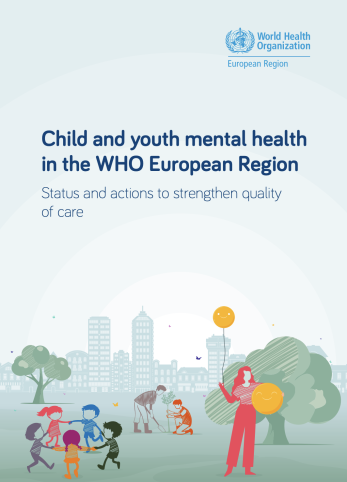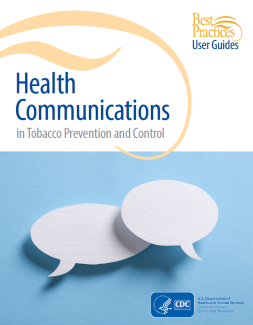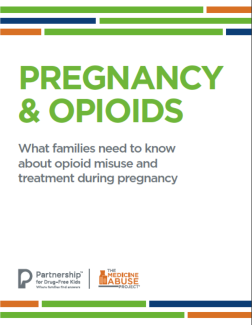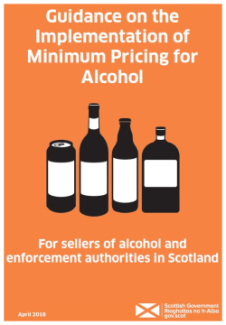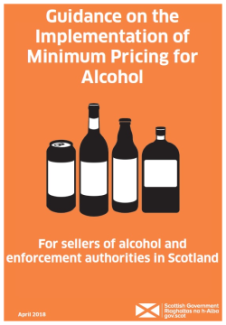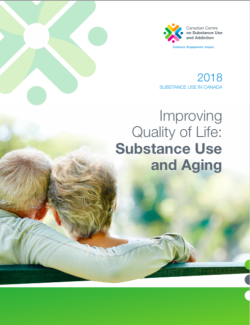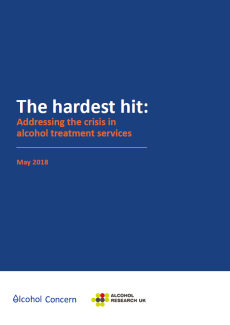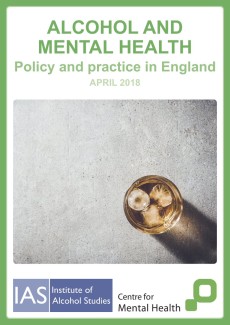Search
Treatment
Applying interventions designed to reduce and manage the symptoms of substance use disorders.
National Prevention Week 2018
National Prevention week led by the Substance Abuse and Mental Health Administration (SAMHSA) will take place from 13-19th May 2018.
Each day focus will fall on a different topic - starting off with the theme of "Promotion of Mental Health...
Health Communications in Tobacco Prevention and Control
This user guide focuses on how comprehensive tobacco control programs can deliver effective health communications. Best Practices for Comprehensive Tobacco Control Programs—2014 recommends mass-reach health communication interventions as...
The Effect of Branding to Promote Healthy Behavior: Reducing Tobacco Use among Youth and Young Adults
Abstract
Policy interventions such as public health mass media campaigns disseminate messages in order to improve health-related knowledge, attitudes, beliefs and behaviors at the population level. Only more recently have campaigns that...
Tobacco Cessation Interventions and Smoke-Free Policies in Mental Health and Substance Abuse Treatment Facilities
Impact of an Online Training Program in Hospital Workers’ Smoking Cessation Interventions in Bolivia, Guatemala and Paraguay
Abstract
Objective
To examine changes in hospital workers’ interventions before and after online training.
Method
Pre-post evaluation of the self-reported performance of the 5A's by hospital workers from the three organizations involved...
Effectiveness Bank Drug Treatment Matrix Row 3: Doctors and Drugs
Time to consolidate the lessons of the online course on drug treatment's last five instalments, all on medical treatment of drug dependence. Medications most clearly mark an intervention as ‘medical’, but are never all there is to treatment...
Stigma Associated with Medication Treatment for Young Adults with Opioid Use Disorder
Abstract
Background
Opioid-related overdose deaths have risen sharply among young adults. Despite this increase, access to evidence-based medication for opioid agonist treatment (OAT) for youth remains low. Among older adults, barriers to...
Experiences of a Motivational Interview Delivered by a Robot: Qualitative Study
ABSTRACT
Background: Motivational interviewing is an effective intervention for supporting behavior change but traditionally depends on face-to-face dialogue with a human counselor. This study addressed a key challenge for the goal of...
How Can Contingency Management Support Treatment for Substance Use Disorders? A Systematic Review
Rewarding people dependent on illegal drugs for not using those drugs is a controversial tactic, one this report from the European Union’s drug misuse centre found patchily effective in extending retention and reducing substance use as a...
Pregnancy & Opioids Guide
INTRODUCTION
Is there a young woman in your life who is pregnant and misusing or addicted to opioids? Perhaps it’s your daughter or granddaughter, your son’s girlfriend or wife, a niece or a friend. Here you’ll find information to help her...
Alcohol Industry Corporate Social Responsibility Initiatives and Harmful Drinking: A Systematic Review
Abstract
Background: There is growing awareness of the detrimental effects of alcohol industry commercial activities, and concern about possible adverse impacts of its corporate social responsibility (CSR) initiatives, on public health...
Guidance on the Implementation of Minimum Pricing for Alcohol
With legislation brought in on 1 May 2018 the Scottish Government has produced a resource offering Guidance on the Implementation of Minimum Pricing for Alcohol for sellers of alcohol and alcohol enforcement authorities in Scotland.
The...
Scotland Becomes the First Country to Enforce Minimum Pricing on Alcohol
Scotland has become the first country in the world to enforce a minimum price per unit of alcohol. As of 1 May 2018 all alcohol must cost no less than 0.5GPD or 50 pence.
The move is the result of a long process of research and...
Improving Quality of Life: Substance Use and Ageing
The Canadian Centre on Substance Use and Addiction (CCSA) has released a resource focusing on substance use in ageing populations.
The document covers the consequences of substance use in older adults, health conditions which might occur...
Psychological and Psychosocial Interventions for Cannabis Cessation in Adults
Abstract
Objective: Many psychological and psychosocial interventions have been developed to treat regular users of cannabis, but it is unclear which intervention(s) are the most effective. This article aims to assess the effectiveness of...
The Hardest Hit: Addressing the Crisis in Alcohol Treatment Services
This research, launched at the All Party Parliamentary Group on Alcohol Harm on 1 May 2018, warns that the alcohol treatment sector is in crisis. These services are entering into a cycle of disinvestment, staff depletion, and reduced...
The Influence of Psychological Factors during Early Years of Life in the Development of Addiction
Abstract
Addiction is a multifaceted condition with various entry and exit points throughout its course in an individual's life. In some adolescents, early onset can be followed by limited adolescent use or abuse and is more related to...
Broadening the Base of Treatment for Alcohol Problems
As an aspect of its general responsibility for the health of the American people, the U.S. Congress has been
concerned about the treatment of persons with alcohol problems. From time to time Congress has sought
information on such treatment...
Alcohol and Mental Health: Policy and Practice in England
EXECUTIVE SUMMARY
Many people who misuse alcohol also have a mental health difficulty, and many people with mental health problems also misuse alcohol. Yet few get effective help from either alcohol or mental health services. National...
Effectiveness Bank Analysis: French Committee Says Risks of Baclofen Outweigh Benefits in Alcohol Treatment
*Updated* Our commentary on the first trial to rigorously test high-dose baclofen to treat dependent drinking has been updated with the release on 24 April 2018 of an opinion on the balance between safety and benefits from a scientific...
Share the Knowledge: ISSUP members can post in the Knowledge Share – Sign in or become a member


